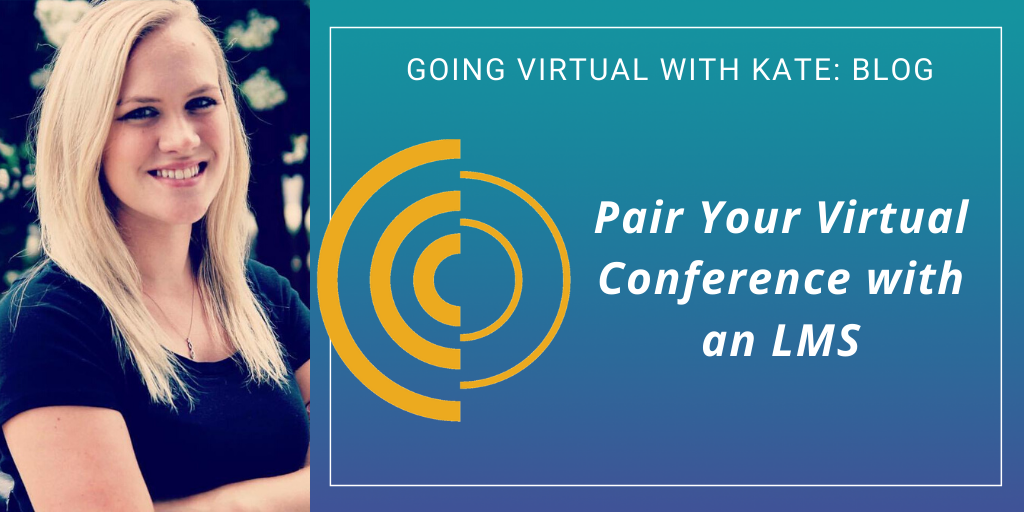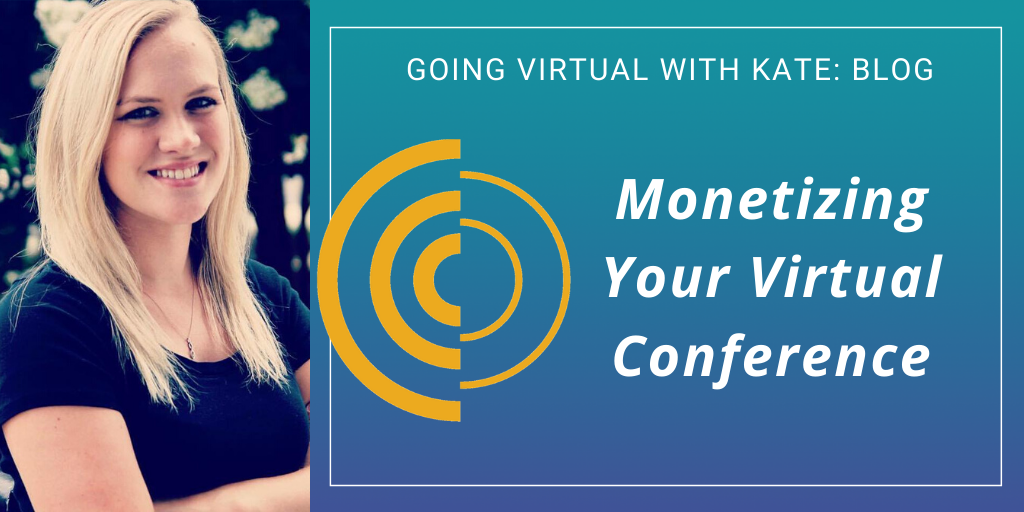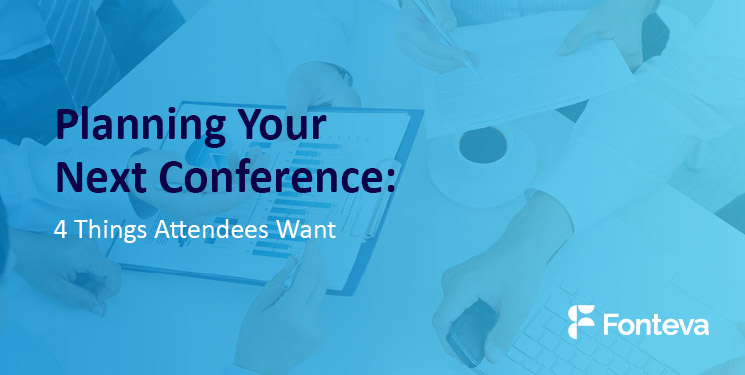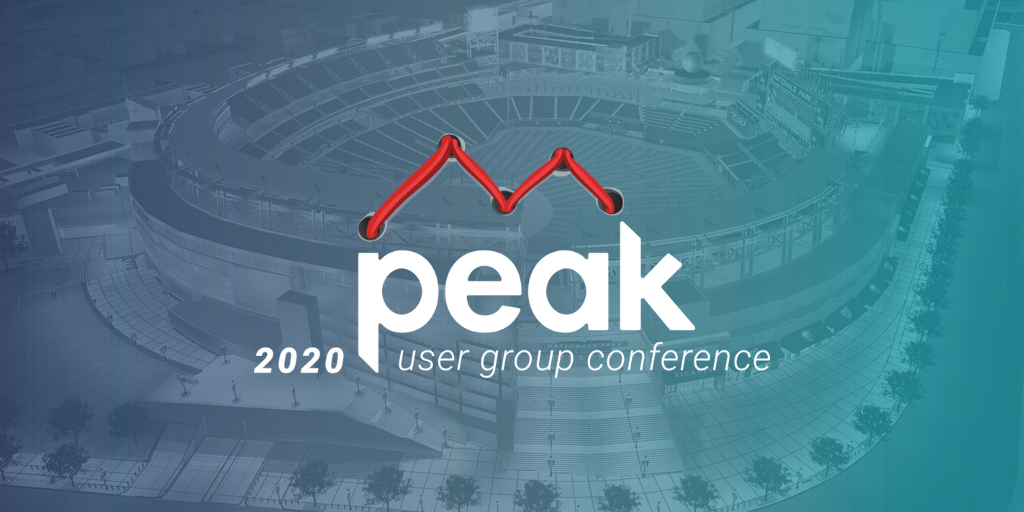
by Julie Ratcliffe | Apr 16, 2020 | Blog, FaceBook Live
The reality of transitioning to a Virtual Conference can be as simple or complex as planning a traditional on-site event, depending on the needs of your organization. As CommPartners sees inquiries come in for Virtual Conferences, one question we hear often is, “is an LMS platform really necessary?”
In short, we believe, yes! An LMS or Learning Management System, like CommPartners’ Elevate, allows you to house all your conference resources in one place and creates a space for attendee engagement. Your LMS will be an enduring knowledge presence that makes your learners want to come back to your site for content and information repeatedly. An LMS also opens doors for new ways to monetize online learning as a fresh, constant source of content for your clients and members!
A Home Full of Resources
An LMS platform provides a place for your attendees to return throughout your Virtual Conference. They can reference things like the agenda, speaker bios, virtual tradeshow booths, uploaded resources, and more! Just like an in-person conference or exhibit hall, your attendees will be able to explore your LMS platform to find new and interesting information. An LMS will house a full catalog of resources for attendees, simplifying their experience by eliminating the need for multiple platforms.
One of the biggest concerns when moving from an on-site conference to a Virtual Conference is the elimination of human interaction. Learners attend these events to network and connect with people, and online that doesn’t seem possible. An LMS like Elevate can provide you with many options to bridge the gap between attendees, including discussion boards on the conference site or a specific session, live chat, and Q&A with the presenters during a live broadcast and one-to-one chat messaging! Peer-to-peer conversations, discussions with presenters, and live reactions will create a sense of human interaction in a virtual space.
A Stream of Content
By building an LMS platform now, you can secure a solid foundation for future online events and even create a new, constant source of information for clients and members. Plus, if your organization would want to produce another event, you would already have the tools, site, and team in place to implement. Not to mention, your attendees would have continued access to resources provided by you. With an established LMS, you have the option to add virtual components to any future on-site events. Attendees would also have the ability to refer back to the recordings of your conference to refresh themselves on what they had previously learned. By building an LMS into your crisis solution now, you are securing your organization for a sustainable future.
Make Money While Solving a Problem
The current need is for a virtual solution. Just because you are strategizing how to move forward in difficult times, doesn’t mean it should be at a loss! There are many options within an LMS to monetize your online offerings outside of registration fees. An LMS offers a constant source of resources, like creating subscription plans for your learners to access resources. You can brand pages with sponsors, play sponsor commercials in breaks, and feature ads in various areas of the platform. You can charge for virtual booth space in addition to the on-site booth, should you move forward with an on-site program. Monetizing Your Virtual Conference may mean a new way of creative thinking, but it is entirely possible to do!
While creating your virtual solution for this new challenge, it is wise to slow down, even for a brief moment, and analyze the long term return on investment. With so many uncertainties lingering, creating an LMS will enable you to maximize your remote presence.
Watch all the On-Demand Facebook Live Episodes Here!

by Kate Ratcliffe | Apr 9, 2020 | Blog, FaceBook Live, Uncategorized
Going virtual doesn’t mean that you lose everything that an on-site event has! A lot of what you had planned for your on-site event can still occur online, it just may look a little differently.
Here are six ways you can maximize sponsorships and attendee revenue in a virtual platform:
Exhibit Halls
In your conference website, a virtual exhibit hall can be built out to house all the resources a sponsor wants to distribute to attendees. In each “exhibit booth”, the sponsor can upload PDFs, videos, company descriptions and links, and other resources. The exhibit hall will be open 24/7 – giving even more exposure for the sponsors that originally intended. The “exhibit booths” can also be upgraded to allow chat room style discussions between attendees and staff from the sponsoring organization. Your sponsors will get maximum and continual exposure to your attendees and will serve as a resource for attendees throughout the conference with having to have a booth “maned” the entire time.
Branding and Logo Opportunities
Because you are building this virtual conference site from the ground up – you have the ability to make an al a carte sponsorship of nearly any page on the website. Have a poster session? Offer this page a sponsorship add-on, with their logo in a prominent location on this busy web page. Giving an option for boosted exposure on commonly used pages on the virtual conference exposure is another way the sponsors can ensure they are getting ROI.
Commercials or Pre-Produced Videos
Sponsors could upgrade their commitment level to include a commercial or pre-recorded video to play before or after a session in the virtual conference. All the sponsor needs to do is provide the video ahead of time and it can be queued up! This gives the sponsor the attendees undivided attention, as they are preparing for or concluding a session. You can also chose to have that video as a permanent part of the archived recording, which means evergreen exposure for the sponsor!
Session and Speaking Opportunities
There are numerous ways to offer speaking opportunities to your sponsors in exchange for financial support. You can offer an entire session to sponsors, or you can create a while section of your agenda dedicated to sponsors giving presentations! Allowing the sponsors to present gives them the feeling that they may miss of being in front of human people. It give a human interaction to a virtual setting.
Attendee Access Fees
Just as you would charge a registration fee for an on-site conference, you should be charging a registration fee for access to the virtual event. You can also break the access into per day or per session registrations if that suits your conference model better. You can also charge for access to various, high-profile discussions or resources. Attendee fees should not necessarily be less for a virtual conference, because while you are eliminating food and venue costs, you are now gaining hosting and technology costs.
Subscription Fees
Allowing your content to live on in an LMS is a smart move. You are able to continually add to your archive through the years of events and house more resources for 24/7 access. Just because an attendee paid for the conference does not necessarily mean they should receive access to the archives for an undetermined amount of time. You could restrict access to archives and other resources to those that choose to purchase subscriptions to your LMS platform. Entice your attendees to subscribe by offering exclusive content in the subscription model only.
Whether you are going virtual from the onset or rescheduling an onsite event, the conversation about monetization is important and necessary. There are many ways to drive revenue for a Virtual Conference, and these six options are only scratching the surface! Have any other ideas on how to boost revenue in a virtual format? We would love to hear from you at marketing@commpartners.com
Click HERE to see all the episodes from Going Virtual with Kate!

by Guest Author | Feb 13, 2020 | Blog
|
If planned successfully, your conference should attract a group of like-minded people and offer a unique experience that they can’t get anywhere else. Whether it’s a professional or academic conference geared toward associations or nonprofits, people are ultimately registering to network and learn from others like them.
Conferences are also becoming very popular to host, so it might take more than just a simple announcement to garner enough registrants. With ongoing technological innovations and modern event planning tools automating a good amount of manual tasks, it can be tricky to determine the best way to attract attendees.
A good school of thought is to always consider what your attendees want. According to Fonteva, your event management software can offer a wide variety of tools to empower your guests and give them more flexibility to optimize their own experience.
|
If you don’t know where to start, there’s no need to stress! In this guide, you’ll learn about the many ways you can go the extra mile, enhance your conference, and attract more attendees:
|
Learn the best ways to elevate your conference and ensure that your attendees have the best experience possible. Ready to clear up what your event guests want? Let’s get started!

1. Host a dedicated conference website.
Conference planning should start months before the actual event date. Once you have a good sense of the venue, vendors, speakers, and sessions, it’s time to announce it! To get the word out, you should develop an event marketing strategy.
A great way to kickstart event registration is to announce your conference online. While you’re likely already distributing an email newsletter and posting about it on your organization’s main
website, an effective way to make your conference more accessible and attention-grabbing is to create a dedicated website for it.
Many organizations will build a micro-site to promote their event and serve as a hub for all relevant details. This is an individual webpage that is associated with the main site but can function as its own entity. A page that is dedicated specifically for the event is beneficial since potential attendees are likely searching online to learn more.
On your dedicated conference event page, you can:
- Host all necessary details and event information.
- Accept registrations and sell tickets.
- Track leads and gain better insights into how people find your event.
- Sell merchandise on an eStore. For example, you can sell t-shirts as a fundraiser.
Make it easy for your guests to learn about your event and register. Additionally, guests can easily share the link with others and help spread the word! Read on to learn what to do once you get people on the website.
Back to Top of Post

2. Offer flexible registration options.
Even after you make your conference website aesthetically pleasing and easy to navigate, “shopping cart abandonment” can happen for many reasons. You don’t want your online registration process to ultimately turn attendees away. Luckily, there are a couple of steps you can take to prevent this from happening.
Take a look at your event management tools and consider how your online registration can be more efficient and better meet prospective attendees’ needs. For starters, it’s important that your registration form is branded and customized to your specific conference.
Many software solutions provide form templates to help event planners improve their registration process. While this is helpful, you should also ensure that you can tailor the questions. This means eliminating questions that aren’t applicable, making certain fields optional, and providing all necessary event forms and waivers.
In addition, it’s critical to empower prospective attendees to choose how they want to register for and experience your conference. Flexible registration options will boost the chances of registration completion. Here’s what you can offer:
- Varying packages and registration levels. Give guests the option to upgrade or downgrade their registration level. This means VIP status!
- Group registration. If you’re a manager and in charge of registering your entire department, don’t stress. With group registration options, one person can register multiple people without entering the same attendee data and payment information multiple times.
- Exclusive deals. Give special registrants, like individuals who recently made a large donation or are active supporters of your organization, deals like a discount or early-bird registration!
- Member perks. If your organization is a member-based association, offer member-exclusive perks. Whether it’s discounts or incentives, this is a great way to keep members engaged. Learn
more about this topic.
- Event series and multi-session selector. Ensure that your management tool can handle all types of registration, including a series of events where attendees register for them all at once. On the other side of the spectrum, you can allow users to pick and choose their desired sessions in a multi-session event.
The more flexible your registration is, the more members you will resonate with. Take a look at your event registration tool and consider all of the ways you can leverage it to make your registrants’ lives easier.
Back to Top of Post

3. Boost convenience with a mobile conference app.
A great way to attract more guests to your conference and keep them engaged on-site is to offer a mobile event app. With 96% of Americans owning a mobile device, incorporating a mobile app into your event can create a more connected and convenient experience.
Creating a mobile conference app doesn’t mean you need to contact a professional coder and start from scratch. According to this Pathable article, there is an abundance of event app providers that can help you create one for your conference.
However, depending on your event management tool, you might be able to provide a mobile event app within your existing solution. With a capable mobile event app, your conference guests can:
- Access all event details. It’s likely that your conference has a wide range of speakers, vendors, and activities. From the convenience of their mobile phones, let guests view important information like a timeline or the conference’s schedule.
- Contribute to a community forum. A mobile event app is a great place to host some sort of online forum or discussion board. Conference attendees can engage with each other and interact online.
- Receive urgent announcements. When you plan a conference, you can’t always predict speaker cancellations or other last-minute changes. Through the mobile event app, you can easily notify attendees of any updates.
- Contact customer service. Your attendees might have questions or need to talk to a staff member. Empower them to contact customer service through the mobile app so they can easily receive assistance whenever and wherever.
- Give feedback. As soon as your conference comes to an end, send out a survey through your mobile conference app. This is a great way to gain constructive event feedback while it’s still fresh in their minds.
A mobile event app not only creates a direct connection with your attendees but also provides them with intuitive tools to better navigate your conference. An optimized attendee experience is the best way to increase registration.
Back to Top of Post

4. Provide a conference schedule builder.
Conferences are packed with various learning experiences that aim to bring like-minded people together, so you’ve likely worked hard inviting relevant speakers and coordinating valuable activities and sessions.
For instance, if you planned an educational conference, all of your guests are likely academic professionals and work in some type of educational institution. With your event management tool, you can easily book speakers who are widely known in the academic world and provide multiple sessions hosted by education leaders.
To further attract attendees and make the conference experience as enjoyable as possible, let guests build their own conference schedule out of the variety of activities and sessions you’re hosting. This gives your guests ownership and control of their personal conference experience, ensuring that they’re able to enjoy the event.
Let conference attendees edit their schedules and access them from the mobile event app. This way, they won’t miss out on an activity and can check up on it whenever they need to. If there are multiple sessions that a guest wants to attend at once, it can be beneficial to do some on-site recording and allow attendees to view it after the conference is over!
Back to Top of Post
As you begin to think about your next conference, make sure you’re especially considerate about your attendees’ specific needs. Put in the effort to empower your guests and provide them with the tools they need to enjoy your conference the way they want. Good luck!

by Julie Ratcliffe | Feb 13, 2020 | Blog, News
| CommPartners’ Peak User Group Conference started in 2018. After meeting clients face-to-face, and receiving positive feedback from participants, we knew this was something we wanted to repeat. So, we created a biennial, in-person learning and networking event that would bring together all the associates we work with within the eLearning space.
Now we have arrived at Peak 2020. Peak 2020 is a 2-day conference bringing together members from CommPartners’ growing community of clients, partners, and industry experts to network, collaborate, and learn. Enjoy a full schedule of Elevate LMS Training, Virtual Event Training, thought-leader presentations, and social opportunities with the thrilling backdrop of Nationals Park, home of the reigning World Series Champions, the Washington Nationals!
We designed this conference to specifically cater to prospective clients as well as current Elevate users using two educational tracks. Track A is more than just getting to know Elevate, it’s learning how to use the LMS to leverage your educational strategy. Track B focuses on getting the most out of Elevate, concentrating on creative and innovative uses for the LMS beyond what administrators might already be doing. These tracks are specialized to meet the needs of our learners, ensuring they have the tools to implement successful online educational programs.
If you have attended in the past, don’t expect the same content you saw at Peak 2018, says Kate Ratcliffe, Marketing Director, “as general technology is always changing, so is Elevate. We are going to highlight new features; we are going to highlight underused features”. Attendees will also have the opportunity to brainstorm with CommPartners’ team members to be sure they are best leveraging what they have learned throughout the conference within their organizations. |
Whether you are already an Elevate user or you think it might be something you could use to enhance your education efforts, Peak 2020 has something to offer you:
What will you get out of Peak 2020?
- Learn about Elevate LMS strategies and best practices
- Make sure you are getting the most out of your current Elevate system or learn how your organization could benefit from an LMS
- Hear about the latest online education trends from community experts
- Pick up tips and tricks to keep your education program relevant and engaging
- Earn CAE credits for your participation
- Networking opportunities Engage fellow CommPartners’ clients to network and share ideas
- Participate in fun activities such as dugout tours, batting practice, and have a picture taken with the world series trophy
- Enjoy an evening at the ballpark with CommPartners’ staff and colleagues
|
Peak 2020 will be July 30-31, 2020, in Washington, D.C. Register now until March 26, 2020, for a “Pre-Season” discount. Please visit the Peak 2020 website for all the details. We are looking forward to seeing you in Washington, D.C., this summer!
Learn More!









